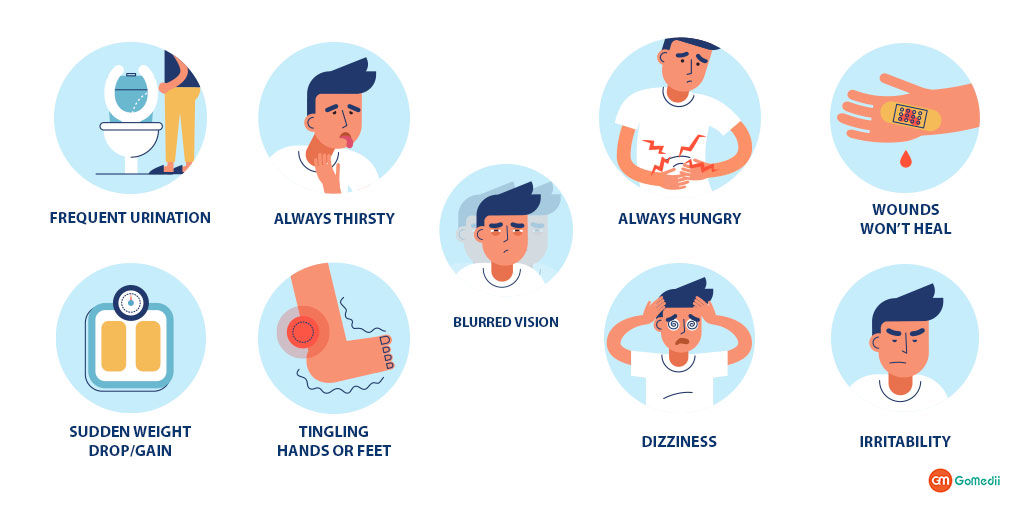What is prediabetes?

Prediabetes: Understanding and Managing Your Risk in Kenya
Prediabetes in Kenya is a condition where blood sugar levels are higher than normal but not yet high enough to be classified as type 2 diabetes. This condition indicates that you are at a high risk of developing type 2 diabetes in the future. Many people with prediabetes in Kenya may not experience any symptoms, making it essential to get tested if you are at risk.
In Kenya, as in other parts of the world, prediabetes is sometimes referred to as borderline diabetes. Higher-than-normal blood sugar levels can be detected through various blood tests, such as:
- Impaired fasting glucose (IFG)
- Impaired glucose tolerance (IGT)
- Impaired glucose regulation (IGR)
- Non-diabetic hyperglycemia
These tests, which can be fasting or non-fasting, help healthcare professionals assess your risk of developing type 2 diabetes. Knowing your risk is the first step toward taking action to prevent or delay the onset of type 2 diabetes.
Diagnosing Prediabetes
Hearing the term "prediabetes" might make you feel like a type 2 diabetes diagnosis is inevitable, but that’s not necessarily true. Many people can reduce their risk of developing type 2 diabetes or even prevent it altogether with the right lifestyle changes..
If you're concerned about prediabetes, consider visiting a healthcare provider for a blood test. The most common test is the HbA1c test, which measures your average blood glucose levels over the past two to three months. If your HbA1c level is between 42 mmol/mol (6%) and 47 mmol/mol (6.4%), it indicates that your blood sugar is higher than normal, putting you at risk of developing type 2 diabetes.
Symptoms of Prediabetes
Prediabetes usually does not cause any noticeable symptoms. If you start experiencing symptoms of type 2 diabetes, it may mean that you have already developed the condition. Therefore, it's essential to be aware of the risk factors and seek support to prevent or delay the onset of type 2 diabetes.
Common symptoms of type 2 diabetes, which may not be present in prediabetes, include:

Causes of Prediabetes
In Kenya, like in many other countries, the number of people at risk of type 2 diabetes is on the rise. Prediabetes is a warning sign that you are at a high risk of developing type 2 diabetes. The good news is that with the right support, up to 50% of cases of type 2 diabetes can be prevented or delayed.
Type 2 diabetes occurs when insulin, the hormone that controls blood sugar levels, doesn’t work properly. This leads to elevated blood sugar levels and, over time, can cause the pancreas to produce less insulin, resulting in even higher blood sugar levels.
Type 2 diabetes often develops slowly and is more common in people over the age of 40. However, in Kenya, an increasing number of people under 40 are also at risk. The signs of type 2 diabetes may not be obvious, and in some cases, there may be no signs at all, making it possible for the condition to go undiagnosed for years.
Risk Factors for Type 2 Diabetes
Several factors can increase your risk of developing type 2 diabetes, including:
- Being over 40 years old, or over 25 if you are of African, African-Caribbean, or South Asian descent
- Having a family history of diabetes, particularly if a parent, sibling, or child has the condition
- Having high blood pressure
- Being overweight or obese
- Environmental factors, such as living in poverty or experiencing inequality, which can also contribute to an increased risk
If these risk factors apply to you, it’s important to get tested. You can visit a healthcare provider in Kenya for a blood test to assess your risk.
Preventing Type 2 Diabetes
Research has consistently shown that lifestyle changes, including a healthy diet, regular physical activity, and weight management, can reduce the risk of developing type 2 diabetes by about 50%. Being at risk of type 2 diabetes does not mean you will definitely develop the condition, so it’s a great time to start making healthy changes.
Here are some steps you can take to reduce your risk of developing type 2 diabetes:
Manage Your Weight
If you are overweight or obese and at high risk of type 2 diabetes, even small amounts of weight loss can be beneficial. Losing just 5% of your body weight can significantly reduce your risk. There are many ways to lose weight, and finding the right support, such as working with a dietitian or joining a weight management program, can help you succeed.
Eat a Healthy and Balanced Diet
There is no one-size-fits-all diet for people at risk of type 2 diabetes, but a balanced diet is key to reducing your risk. Diets that have been linked to a decreased risk of type 2 diabetes include:
- The Mediterranean diet
- Dietary Approaches to Stop Hypertension (DASH) diet
- Vegetarian and vegan diets
- The Nordic diet
- Moderately reducing carbohydrate intake
These diets emphasize healthy foods like fruits, vegetables, whole grains, and lean proteins. Research shows that consuming more of these foods can decrease your risk of type 2 diabetes, while reducing your intake of sugar-sweetened drinks, red and processed meats, refined carbohydrates, and potatoes (especially French fries) can also help.
Be More Active
Leading a sedentary lifestyle is linked to an increased risk of type 2 diabetes. Becoming more active in your daily life can help reduce this risk. You don’t need to take up a new sport or join a gym; small changes, like standing up during phone calls, using the stairs instead of the elevator, or going for a walk during your lunch break, can make a big difference.
Taking proactive steps now to manage your weight, eat a balanced diet, and stay active can help you reduce your risk of developing type 2 diabetes and lead a healthier life in Kenya.